 Back from its Summer recess, Congress has embarked on a process that will ultimately determine – as soon as 2011 – the future role of the federal government in private-sector housing finance and the future role, structure and character of the Government Sponsored Enterprises (GSEs).
Back from its Summer recess, Congress has embarked on a process that will ultimately determine – as soon as 2011 – the future role of the federal government in private-sector housing finance and the future role, structure and character of the Government Sponsored Enterprises (GSEs).
On September 15, 2010 the House of Representatives Subcommittee on Capital Markets, Insurance and Government Sponsored Enterprises held a hearing on “The Future of Housing Finance – A Progress Report on the Government Sponsored Enterprises.” Although the “duty to serve underserved markets” (DTS) mandate imposed on the GSEs by the Housing and Economic Development Act of 2008 (HERA) was not addressed as part of this more broadly-focused hearing, both the implementation of the DTS mandate and the future availability of private consumer financing for manufactured homes will ultimately be at stake in this process. Moreover, the challenges that the industry faces in this process were underscored in testimony by both the Administration and the current federal regulator of the GSEs, the Federal Housing Finance Agency (FHFA), as well as in statements by Subcommittee members.
While the Administration has not yet offered a detailed plan for the future of the GSEs, and is not expected to do so until early 2011, Michael S. Barr, Treasury Department Assistant Secretary for Financial Institutions, reported on the steps taken by the Administration in response to the financial crisis as they relate to the GSE’s as well as the Administration “Objectives and Goals for Housing Finance Reform” – i.e., widely available mortgage credit, housing affordability, consumer protection and financial stability to achieve those goals. He then outlined several policies including the necessity for “clear mandates.” Specifically, institutions that have government support, charters or mandates should have clear goals and objectives. Affordable housing mandates and specific policy directives should be pursued directly and avoid commingling in general mandates, which are “susceptible to distortion.”
Follow-up questioning by the Subcommittee focused on who was responsible for letting the GSEs get out of control and what contributed to their collapse. Some Republican members alleged that the housing goals forced the GSEs to get involved in sub-prime lending and to acquire sub-prime mortgage backed securities. Democrats and Secretary Barr responded that the GSEs acquired sub-prime mortgage backed securities to increase profits and that the housing goals did little to impact the GSEs collapse.
Significantly, though, subsequent testimony by FHFA Acting Director Edward J. DeMarco, expressed reservations about the Administration’s strategy, stating:
“Recently there has been a growing call for some form of explicit federal insurance to be a part of the housing finance system of the future. The potential costs and risks associated with such a framework have not yet been fully explored.”
Without either explicitly endorsing or opposing such a role for the government, he stated three specific concerns in his testimony:
First, he rejected the premise that no private firm would risk funding a 30-year mortgage, “at least at any price that most would consider reasonable.” Rather, he asked “whether there is reason to believe that the government will do better?” noting that “if the government backstop is under-priced, taxpayers eventually may foot the bill again.”
Second, he stated that a government guarantee could allow politicians to favor some areas or demographic groups, noting the government “would likely want a say with regard to the allocation or pricing of mortgage credit for particular groups or geographic areas.”
Third, he stated that a guarantee would shift capital toward housing, which already benefits from other government support.
Discussion among Subcommittee members then addressed moving forward – with some Republican members favoring complete privatization and the elimination of all housing finance goals. Their view is that goals will distort the market and lending will be to higher risk or with less of a down payment.
Regardless of whether there is any such specific guarantee, however, and regardless of the ultimate nature of the GSEs or successor entities going forward, the original mission of GSEs – as embodied in and strengthened by the DTS mandate – to provide home ownership opportunities for lower and moderate-income Americans, was not responsible for the GSEs’ failure and must be maintained in order to ensure that home ownership remains available to as many Americans as possible.
Another hearing on the GSEs is slated to take place later this month. MHARR will continue to carefully monitor these hearings and take further steps relating to DTS and proper GSE support for manufactured housing consumer financing as appropriate.
MHARR will keep you apprised as new developments on this important matter unfolds.





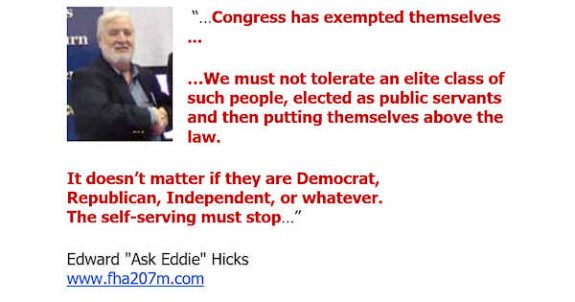
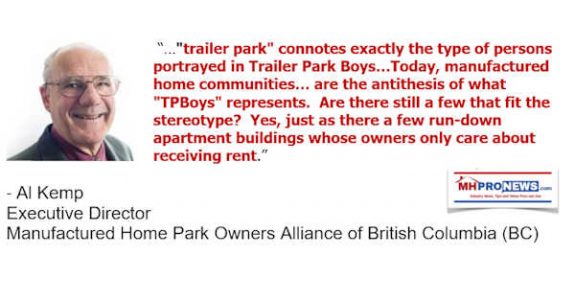
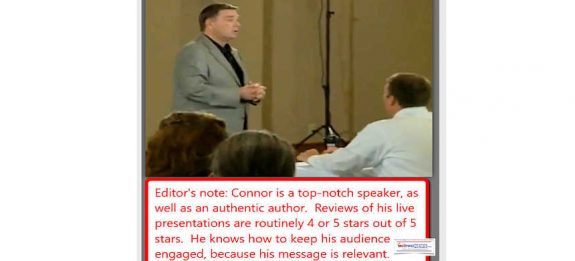
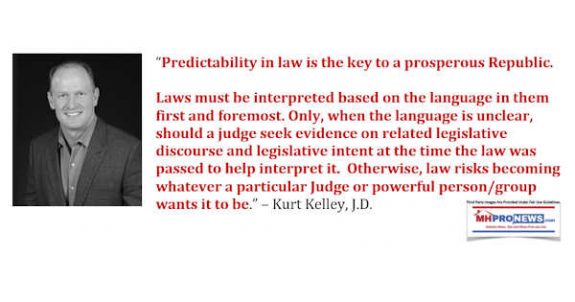

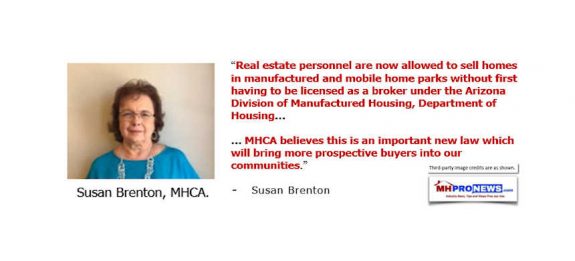
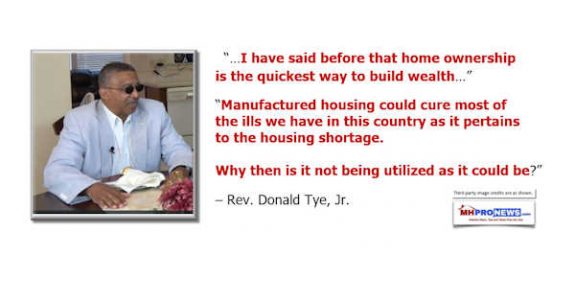
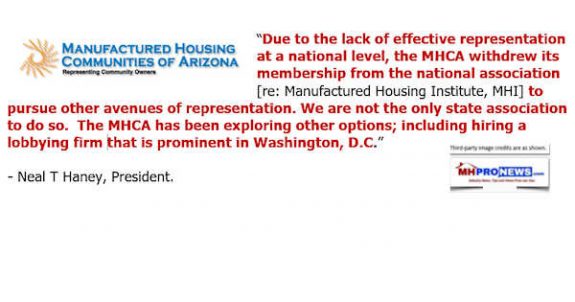

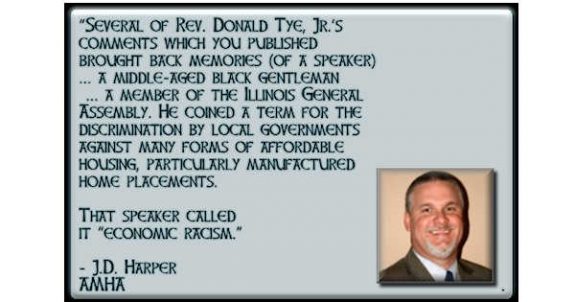

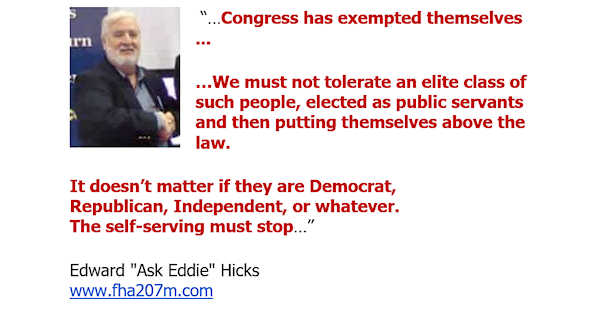
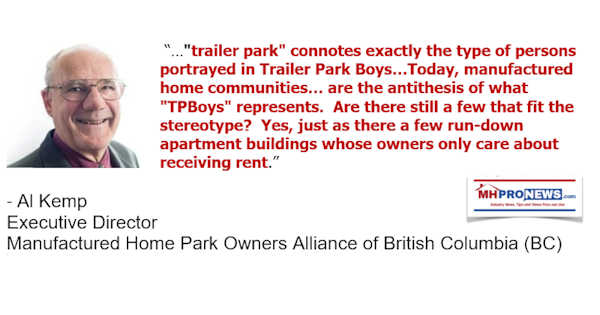
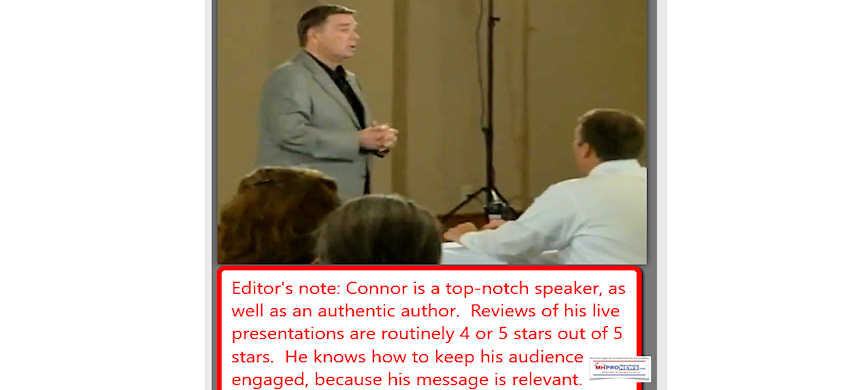
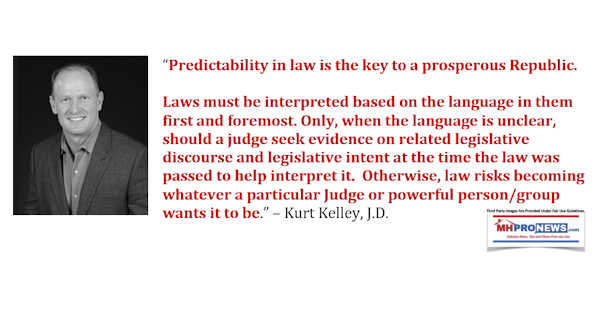

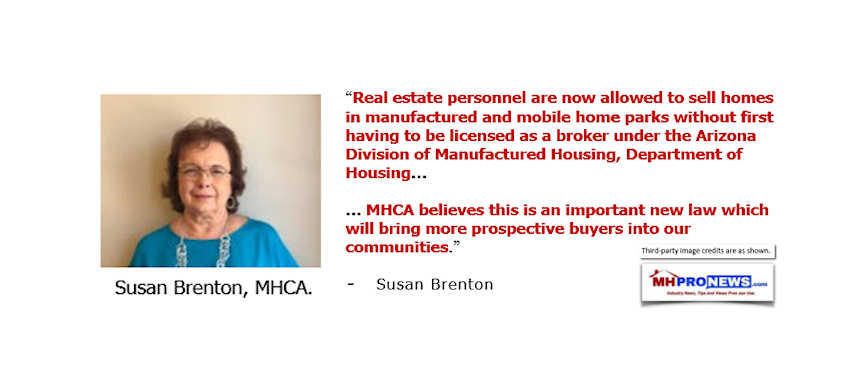
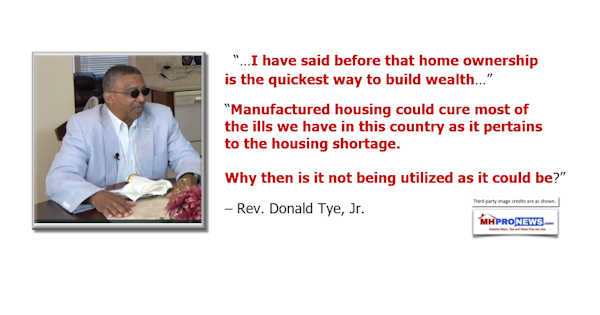
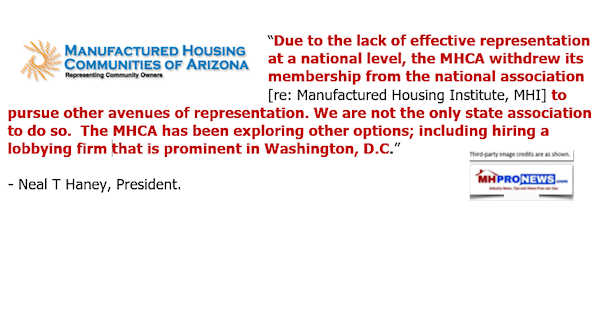

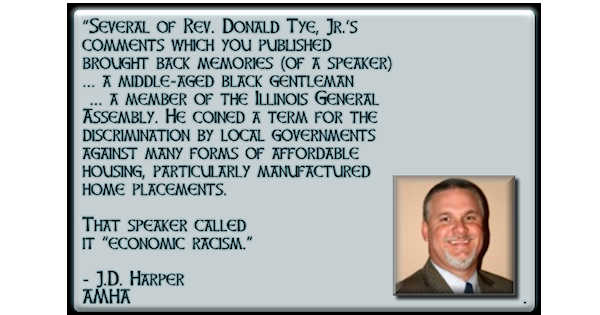
Karl Radde – TMHA, MHI, Southern Comfort Homes – Addressing Bryan City Leaders, Letter on Proposed Manufactured Home Ban
To All Concerned [Bryan City Officials, Others]: As the retail location referenced by Mr. Inderman, I would like to take a moment to address the …